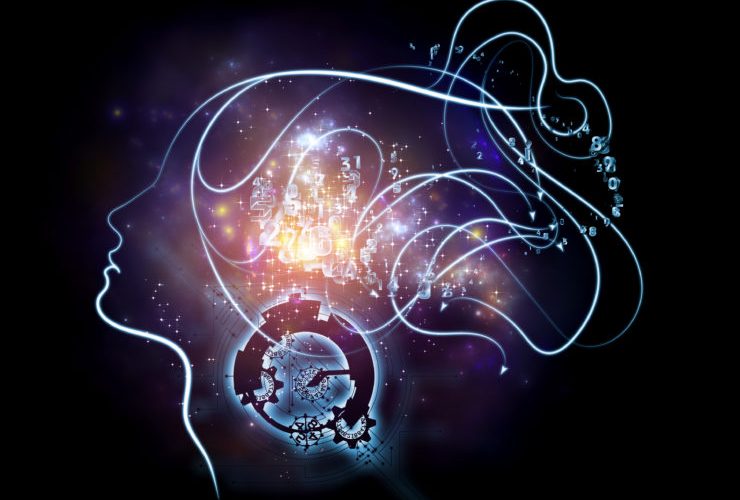Trump tweeted that "These Thugs and Radical Left Monsters have just indicated" him. I believe he wanted the word "indicted," because he just was for…
Selfish, Selfless, and Self-Fulfilled
“Egotists,” I joke, “are those more interested in their selves than me.”
We all have egos. We all see and work the world from the unique locus we know as “I.” We each have our particular body, genetic disposition, situation, and story. While I admire the quest to be egoless, I doubt it happens. Even saints can get caught in their very spiritual ego. And you know what’s harder than being a saint – living with one.
We all know people with egos so big they assume all others exist to satisfy them, or put up with their ongoing glory story, or put up with their ongoing difficult natures. Such big ego types think they’re the main person in the room, the others there as bit players or audience. Then there are those with egos so small we can’t tell who lives in it. They’re vague, absent, pitiful. Little ego types can rouse our resentment easier than our respect. We can have compassion for those caught in big egos or those that lack them, but our more natural response is avoidance and dislike.
It’s not as though we have to choose one or the other, or pick a spot in the middle. Both selfishness and selflessness are forms of failure. Overweening and underwhelming types are forsaking their fit in society and with themselves. Neither know self fulfillment. Both can be liberated from their egos, but the dictum “you must lose yourself to find yourself” must be experienced. Ideally, our religious community facilitates these acts of growth. Ideally, we aren’t dominated by dominators or dragged down by the dreary.
I’ve wrestled with these tensions all my life. I remember the subtle confusion involved in the distain for conceit. What is the difference between conceit and pride? We inherit a distain for both, part of a confused religious mythology that equates pride with offending God. First and foremost of the seven deadly sins was pride. But pride then meant a mixture of delusion and arrogance, putting one’s self forward over others no matter what it did to them, and it meant disobeying God as exemplified in the Garden of Eden myth. It is this second part that forms a subtle deception. Dogmatists and zealots will try to keep you gullible and obedient to their version of theology and its resultant society. The point of such religion is to believe, no matter how soul-destroying their teachings are and alien their God is. I think the point of that myth is not to believe and obey, but to realize how much we lose of ourselves, our Garden, and our God by failing to live up to our innate goodness and potential. We don’t offend God by daring to think and live; we offend the wholeness of God, Life, and Self by failing to be ourselves or by preventing others from being their selves. Conceit blinds us to our faults and others’ beauties. A whole person is proud of their self and appreciative of others.
We inherit subtle confusion about whom and how to be in our religious iconography. Poor Jesus is either kept on the cross, or the empty cross is there to remind us of what we have to bare. Yes, suffering can come in life, and when it does we can learn and grow from it. But suffering doesn’t equal spirituality. The predicament Jesus went through is not for our emulation. More suffering does not equal more spirituality. Neither are the roles of Pontius Pilot or the soldier who drove the spikes needed. More sadism does not refresh a holy story. God doesn’t want victims or victimizers.
Historian of religion Huston Smith helps update and liberate the whole western world by clarifying what is meant by humility. Humility as a virtue had grown to mean “Oh, I am not worthy, O Lord. I am a worm. Only Thou art great.” This is a mistake, a neurosis. Better, he advises, is to see humility as being one’s self fully in such a way as to allow others to be their selves fully. It is live and let live. It says, “I am fully one, but only one.” It is fulfilling one’s self in a way that allows or even helps others fulfill their selves. This turn of definition holds great promise. No more slinking about in feigned lowliness, heads bowed in suitable shows of shame. Instead, all stand tall, for each human fulfills his or her precious incarnation, rising up to wholeness. Nor do the dutifully humble take being bossed by presumptuous egotists, be they husbands, wives, kings, or popes.
Our country is like a person moving from the fallen version of humility to the newer one. From Columbus to the CIA, from the local bank to the World Bank, we’ve allowed the arrogant and acquisitive to run the show. Slowly, we stand up to be sovereign citizens running our country to be more egalitarian and fair. Instead of a democracy of the many down-trodden, scurrying in a stress-filled world of strife, cynical but resigned, barely able to make the payments that work their way up to the insatiable greed of the unsatisfied few, we might achieve one that fosters the life-fulfillment of all. Imagine a society where anyone could rightly stand up and proudly say “I am” because they fully are and didn’t get there by exploiting others. Democracy is rooted in the humanistic faith that we can be ourselves fully and creatively together. Imagine a democracy of creative citizens, not just conned consumers. Imagine one that fosters our growth, that respects and elicits our authenticity, that flourishes because we are flourishing.
Neither passivity nor arrogance serves our individual or collective fulfillment. The “Greed is good” speech of Gordon Gecko was intended to be seen as blatantly shallow. Instead, it became a mantra for the 80’s. Ronald Reagan picked up the trend set by Herbert Hoover, Ayn Rand, and Milton Friedman, leading to a “trickle down” on the poor sort of mindset set against any economic fairness or regulation. Taking from the public commons to stuff the privatized coffers became a community sport. Enron’s Ken Lay succeeded in stealing billions of dollars from states via a needless middle-man trick. He funded Bush’s ascent to the presidency, resulting in needless wars, privatized armies, unregulated banks, a weakened government, generations of debt, and a collapsing society. The massive home mortgage bubble was puffed with greed, from eager buyers taking the tempting loans to the Bernie Madoff types who pushed them.
Did we really think a society built on universal selfishness of “all against all” would be fair, abundant and healthy? Does the invisible hand of the free market magically eliminate morality in community? We’ve empowered the bullies, paying them hundreds of times more than typical earners. Such selfishness needs the selfless to allow the bullies their systematic way. Meanwhile, a frustrated populace languishes in cynical passivity. This economic predicament belies an undergirding of lack of faith, hope, and ardor in our lives. Being selfless is praised more than being self-actualized is. Though Emerson urged us to never compromise our integrity, we do it all too often to fit in, or keep our job, or live what someone else wants us to be. Brooding yet rebellious, full of self-doubt and indecision, we’re afraid to live up to our own integrity. Indolence sighs for love but can’t muster the effort to earn it. Charm goes untried and instead we sulk. We hide out in selflessness, pretending it is a virtue, or we flaunt our selfishness, flapping a flag of patriotic self-righteousness, as if it were a virtue.
Jesus on the cross is not the epitome of who he was. He was forsaken, not just by God, but by his followers. When he beamed compassion, honesty, and care he attracted the multitudes. Selflessness is no automatic virtue. I know many admire Mother Teresa for her tireless devotion to the truly poor, but behind the admirable effort was an exhausted shell of a woman, bossy to those around her, anguished at God’s silence despite all her efforts. Mother Amma, the hugging saint, also devotes her life to the masses, but appears fulfilled in doing so. She manages to give something to everyone she hugs (which now approaches thirty million) while managing a dozen or so charity organizations that truly help the truly poor. Her gifts seem to come out of a boundless generosity rather than a drained sense of futile obligation.
The motivation to help others works better when it comes from a sense of abundance. If you aren’t your own vital force, how can you help the world? While the selfish have to lose themselves to know integrity and community, the selfless need to lose their fear, hesitation and hiding if they are to enjoy and fulfill their precious incarnation. Fear or loathing of being one’s own special self is a mistake, a missed opportunity, a failure. Such persons have to lose that aspect of their identity, for it drags them, and those around them, down. Their fortunes will change when they drop the dreary passivity. Their love life will be livelier when they are too.
So, if we aren’t selfish or selfless, what else is there? Self fulfillment. But what is self? I opened by affirming we are a particular body and ego. Self is found in and through the body. It isn’t just the body, but the doorway to it is through the body. We have to be leery of assuming our self is identical with our ego while looking underneath the ego to the more intimate energy and knowing that is our genuine self. Our sense of name, form, identity, role, story is all there, but staying limited to it, as if only singular and distinct from others, is a mistake. We are made up of cosmic forces making natural ones. Life births and supports us. Culture raises and directs us. Friends reflect and refine us. We are made in relation to both those near to us and to all that is. If I say to go ahead and be your ego, but change it if it is too arrogant or passive, I’m after your fulfillment in a deeper and wider sense.
Something higher and purer calls to us from within and needs us to live up to our outer connectedness. We can succumb to arrogance or absence, but we’re built of better stuff than either. We are not only flawed and fallen, we are built of cosmic potential, able to manifest and magnify the glory of the stars in our minds, hearts, voices, and hands. Selection theory claims we are born of nature “bloody in tooth and claw,” that we have genes that would “rather kill than be killed.” Yes, over thousands of incarnations, our assembled forms include these traits, and we can create a society that expects and taunts them. But we’re also selected for pursuing beauty, for seeking and giving touches, for being able to evade war, for using our minds and intuition, for being helpers and healers, for being concerned for the good of the whole.
“You must lose yourself to find yourself.” If your ego is bound up in selfishness or selflessness it can be examined, and bit by bit, be deliberately relinquished and renewed. Both arrogance and passivity violate community and fail our deeper self. Jesus taught that “in the least of these, there you will find me also.” His community spanned the prostitute and the tax collector even as he was still able to speak truth to the Pharisee. If his condition as Christ is indicative of the God he incarnated, he didn’t keep it to himself. He saw it in all. He was very universalist in this, and you can be too.
When YHWH God was asked who He really is and how He came to be He replied, “I am that I am.” This could be taken to mean “I’m self made; it’s beyond you; don’t dare ask.” Or it could be taken to mean, “I am the “I am” that you are and you see in all other beings.” You may be alone in yourself; I think we all are. But you are identical to all other sentient beings in that regard. We’re all largely alone, relieved somewhat by precious intimacy and connection to community. All forms, all egos, are built on the sense of self. Within the arrogant or absent is a brighter self, there to be known and invited out. If we would know the fullness of our own it will be by also granting, allowing, serving, even loving the more universal reality of self in others. “In the least of these” includes that other in front of you and your own self.
The easterners say, “Tat Twam Asi,” Thou Art That. We find and explore the Thou that we are when we see the “that” of the other is also the Thou. Instead of seeing a Kraut, Gook, or Rag-head, we see another human being as troubled and precious as we are. Instead of seeing only labels like “right wing” or “left wing” we see persons trying to say and live their values. Instead of living an empty life of self denial we assert our own special self, we fulfill our precious incarnation, we embrace and reveal our own Thou.
Our Unitarian Universalism helps awaken and actualize our own self fulfillment. When we say we are one, we affirm and fit into both senses of the word one. We are one as an individual, unique incarnation. There has never been anyone just like you, nor will you ever be again just as you are. Only you can fully live your life. And we are also one in that we are imbedded in family, fellowship, community, nation, humanity, life, and this awesome cosmos. Our little one lives in the larger one, hopefully responsively and creatively. We can live up to both at once by being neither selfish nor selfless. The little one and the vast one are one. Both are affirmed to have either fulfilled.
Reverend Brad Carrier
For the Unitarian Universalists of Grants Pass
Grants Pass, Oregon
© June 6, 2010
Subscribe
0 Comments




